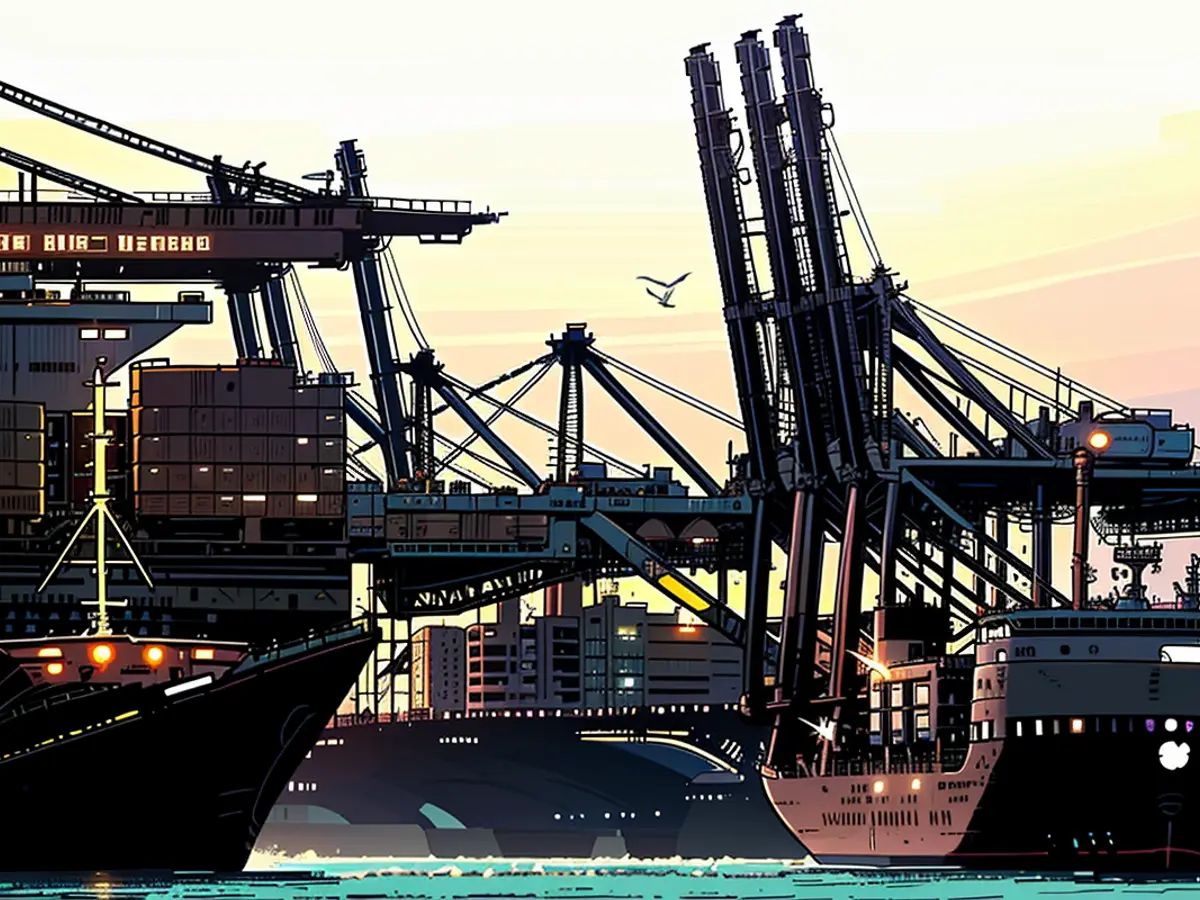Habeck: Economic crisis cannot be ended with a snap of a finger
The German economy is currently in a recession with one foot. The expected recovery has been repeatedly delayed. Economics Minister Habeck sees several reasons for this. "China is faltering" and there is a lack of investments. However, he is optimistic that the growth initiative will take effect.
The weakness of the German economy is more persistent than expected by the traffic light government, according to Vice Chancellor Robert Habeck. The recovery has repeatedly been delayed, despite several times signaling light at the end of the tunnel, the economics minister said in Berlin to journalists. This is also due to the strong dependence on trade with China.
"China is faltering," said the Green politician. In addition, necessary investments in infrastructure are lacking, and the shortage of skilled workers has been reacted to too late. "All of this is now taking its toll and is not something that can be fixed with a snap of the fingers."
The German economy is currently in a recession. The gross domestic product shrank by 0.1 percent in the second quarter, after growing by 0.2 percent in the first three months of the year. Two consecutive negative quarters are referred to as a technical recession.
Measures to strengthen the location
Habeck said that more incentives for investments are needed. At least, lower interest rates can be expected in the second half of the year. In addition, the measures to strengthen the location - the so-called growth initiative - must be implemented. "Those should now also come quickly." Hopefully, the Bundesrat will join in this time.
49 individual measures are intended to make Germany more attractive for companies and investors as well as foreign skilled workers. The traffic light coalition of SPD, Greens and FDP is counting on the package of measures to lead to an additional growth of around half a percentage point next year. That would be 26 billion euros in additional economic output. Economists are skeptical that this can be achieved.
In the monthly report of the Ministry of Economics, it was stated that the conditions for a revival in the second half of the year are still given. Private households have more money available due to falling inflation rates and simultaneous wage increases in collective bargaining.
Germany as a brake
They also looked less pessimistically into the future. "Thus, impulses for the economy could come from private consumption in the second half of the year." The interest rate turnaround initiated by the European Central Bank should also become increasingly noticeable. Recent ECB surveys indicate a trend reversal in credit demand in Germany. This signals a revival of investments. Within the euro zone, Germany is currently a brake.
The gross domestic product increased by 0.3 percent in the months of April to June compared to the first quarter, as the European statistical office Eurostat reported. At the beginning of the year, the increase was also 0.3 percent. The economy in France performed better with an increase of 0.3 percent. Italy had an increase of 0.2 percent. Spain's gross domestic product even increased by 0.8 percent.
The traffic light coalition acknowledges the persistent economic weakness due to several factors, including the strong dependence on trade with China and a shortage of skilled workers. The delayed recovery of the German economy is also attributed to the late response to the skilled worker shortage.
The lack of investments in necessary infrastructure and the ongoing struggle with the shortage of skilled workers have contributed to the current economic recession in Germany, making a quick recovery challenging.








